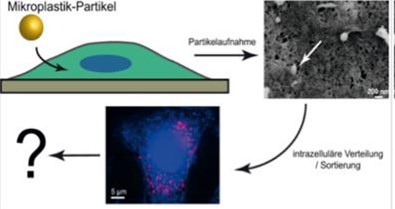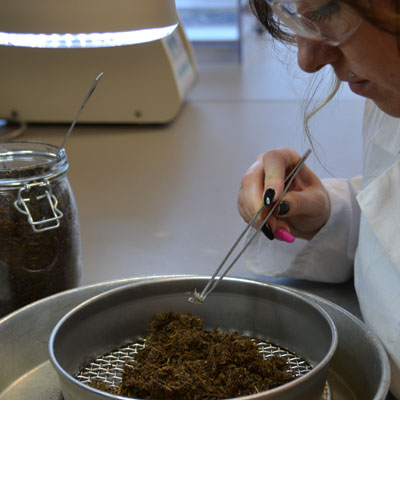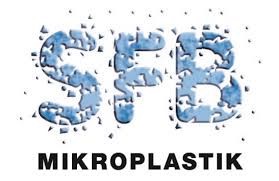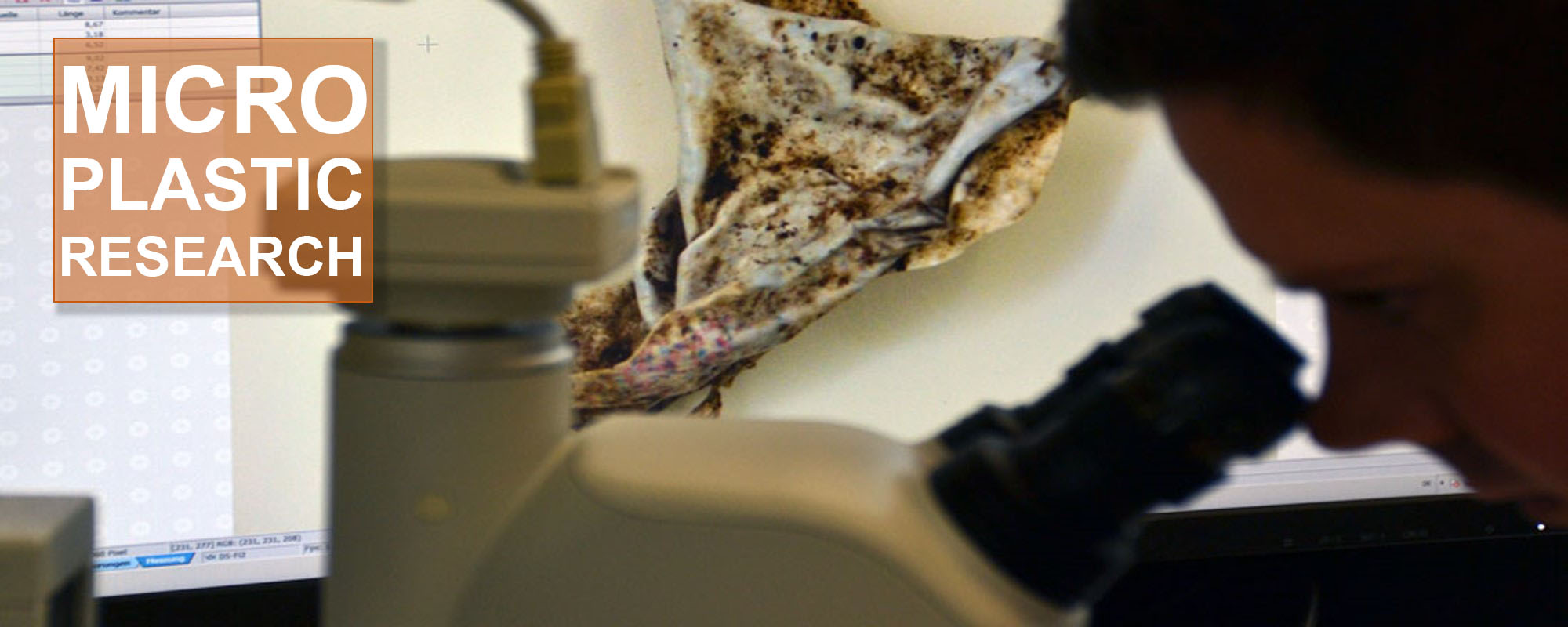Microplastic
Microplastics (MPs) and the potential risks they pose to our health are a hotly debated topic. Current state-of-the-art research has been mainly concerned with the development of monitoring methods, the quantitative assessment of environmental pollution, the identification of relevant entry pathways and initial entry minimization approaches. However, these approaches lacked a fundamental understanding of the physical, chemical and biological processes that MP is subject to in the environment.
Microplastic (MP) particles, defined as particles < 5 mm, are being increasingly viewed as environmental pollution. Current research has been largely focused on a descriptive evaluation of the contamination. Dynamic effects, such as entry pathways and their impacts, are poorly understood.
The Chair of Process Biotechnology is engaged in the following projects:

Collaborative Research Centre (SFB) 1357 – Microplastics: Project A05: Influence of Microplastics on Cellular Level
This project analyses the effect of MP uptake on a cellular level. The biological effect as well as possible release are also investigated utilizing MP particles between 0.5 and 5 µm. Different types of standardized plastics are tested and compared with organic cellulose and inorganic clay. Immortalized murine cell lines act as an initial model system, while primary cells are being isolated from aquatic and terrestrial model organisms.

Environmental Systems
The aim of this project is the investigation of an important entry path for plastics from technical plants into the environment as microplastic (MP). Simultaneously a new approach will be explored for improved environmental compatibility of commodity plastics by avoidance or reduction of MP. For this purpose the surface properties of polyethylene, polypropylene, polystyrene, nylon, poly(ethylene terephthalate), polyisoprene and poly(vinyl chloride) will be modified by accelerators (in situ) for biofilm formation and thereby make the plastic under process conditions available for biodegradation. Following this concept also commodity plastics could become environmentally compatible with regard to MP-particle formation. With this, the project reaches out beyond the descriptive studies on MP in technical plants and the environment.
Research Partners:
- University of Bayreuth
- LMU Munich
- TU Berlin
- Leibniz University Hannover
- Leibniz Institute of Polymer Research Dresden
Funding:

funded by the German Research Foundation

Sonderforschungsbereich SFB 1375
MiKoBo: Microplastics in Composts and Organic Garbage Disposal Fermentation Residue and their Entry Pathways into Soil – Identify, Evaluate, Avoid
MiKoBo investigates the environmental system of soil from the standpoint of microplastic entry. Sludge is a common known entry vector for microplastics in soil, but is rarely applied in Germany nowadays. Organic fertilizers have until now rarely been considered for its potential for microplastic contamination of soil. Germany operates within a system of waste separation, where organic waste is collected and processed separately in compost and organic waste plants, creating valuable organic fertilizers. At the same time, organic waste is often contaminated with synthetic material, most often in the form of plastic bags.
The MiKoBo project is created to assess the degree of microplastic contamination of soil created through organic fertilizers produced in this manner. A careful evaluation is required since the positive impact of the fertilizer might outweigh the possible damage caused through microplastic contamination. The entire process chain is considered, starting with organic waste, its processing in technical plants and subsequent post-processing treatments, in order to understand the relevant process engineering and microbiological parameters. Particular focus is put on biodegradable plastics, which might present a partial solution. The results will be verified using satellite plants with standardized microplastics and will be used for legislature recommendation guidelines.
Research Partners:
- Chair of Animal Ecology I, Prof. Dr. Laforsch, University of Bayreuth
- Institute for Sanitary Engineering, Water Quality and Solid Waste Management (ISWA), Prof. Kranert, University of Stuttgart
- Institut für Kunststofftechnik, Prof. Bonten (IKT), University of Stuttgart
- Institute of Biomaterials and Biomolecular Systems (IBBS), Prof. Weiss, University of Stuttgart
- Institut für Bodenkunde und Standortslehre (IBS), Prof. Kandeler, University of Hohenheim
- Fraunhofer Institute for Chemical Technology (ICT), Dr. Forberger, Karlsruhe
Funding:

Ministry of the Environment, Climate Protection and the Energy Sector Baden-Württemberg (BWPLUS Baden Württemberg Program “Lebensgrundlage Umwelt und ihre Sicherung”), Project sponsor Karlsruhe PTKA-BWP
BabbA – Biologically Degradable Bags in Biological Waste Plants: Potential for Displacement of Conventional Plastic Bags, Degradation in Waste Plants, Environmental Relevance
This project researches the usage of biodegradable plastics. The German waste disposal industry is facing a big challenge: on one hand, biological waste should be collected with as little contamination (e.g. from plastic bags) as possible, on the other hand, the total amount of collected organic waste needs to be increased as a large amount of it is being disposed in general waste collectors, by designing organic waste disposal as accessible as possible (through the use of bags). The utilization of biologically degradable plastics could present a solution to this problem. Over the course of this project, the degradation behavior of compostable bags will be investigated in lab and real-life environments, and population surveys at project start and end will be used to compare the subjective perception with observed data regarding biological waste collection habits.
Research Partners:
- Chair of Animal Ecology I, Prof. Laforsch, University of Bayreuth
- Fraunhofer Institute for Chemical Technology (ICT), Karlsruhe
- Institut für Bodenkunde und Standortslehre (IBS), Prof. Kandeler, University of Hohenheim
- BEM Umweltservice GmbH, Ludwigsburg

Ministry of the Environment, Climate Protection and the Energy Sector Baden-Württemberg (BWPLUS Baden Württemberg Program “Lebensgrundlage Umwelt und ihre Sicherung”), Project sponsor Karlsruhe PTKA-BWP


